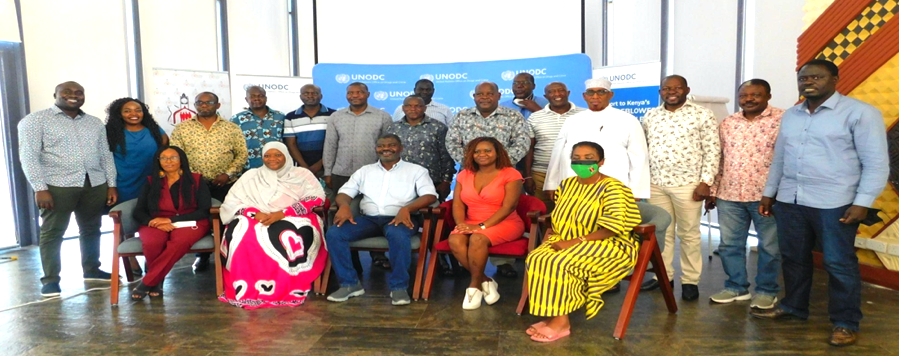UNODC hosts the introductory Whistleblower Protection Bill workshop alongside KYPA

Nairobi, 22 October 2021 - The UNODC alongside the Kenya Young Parliamentarians Association (KYPA), hosted the inaugural whistleblower protection workshop session, kicking off a series of training sessions tailored at preparing Parliamentarians in the policy and legislative consultative activities involved in passing the Whistleblower Protection Bill.
The workshop involved discussions and plenary sessions covering overall aspects of the Whistleblower Protection Bill. These discussions also covered the foundational policy issues including the existing legal framework covered under: the Anti-Corruption and Economic Crimes Act, Evidence Act, the Defamation Act, and the Public Officers Ethics Act. Key issues raised under various laws were outlined by expert consultants and were discussed by Members of Parliament.
The Members of the Justice and Legal Committee (JLAC) of the National Assembly led by Hon. Tom Kajwang reiterated the need to iron out the earmarked contradictions in the existing policy that were raised throughout various discussion sessions.
The workshop provided Members of Parliament with a unique opportunity to interact and familiarize themselves further with the bill from a multi-stakeholder and multi-dimensional perspective. The workshop shed light on the need for significant and comprehensive public participation on the various aspects of the Bill before it is ultimately passed into law.
Great insights were also drawn from various representatives of UNODC who emphasized the need to create a wholesome law that will aid the course of anti-corruption efforts in Kenya and the effective implementation of the United Nations Convention Against Corruption (UNCAC).
Notably, Charity Kagwi, Head of the Criminal Justice and Countering Corruption Pillar UNODC ROEA, expressed the sentiments that the real loophole in the fight against corruption is in the lack of adequate protection mechanisms for witnesses and whistleblowers and essentially creating an atmosphere of fear when speaking out against corruption in Kenya. Louise Portas, Crime Prevention and Criminal Justice Officer, Corruption Economic Crime Branch, on the other hand, further encouraged Members of Parliament to consider the Whistleblower Protection law not in a vacuum or in isolation of the existing legal and quasi-legal framework as this will render the law impractical in its application and implementation.
The workshop plenary discussions highlighted various individual policy and legislative proposals and recommendations from various Members of Parliament and expert consultants. The introductory workshop was concluded on a high note with great enthusiasm from Members of Parliament on the subsequent steps to support the passing of the Whistleblower Protection Bill into law.